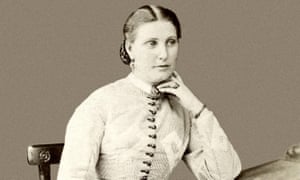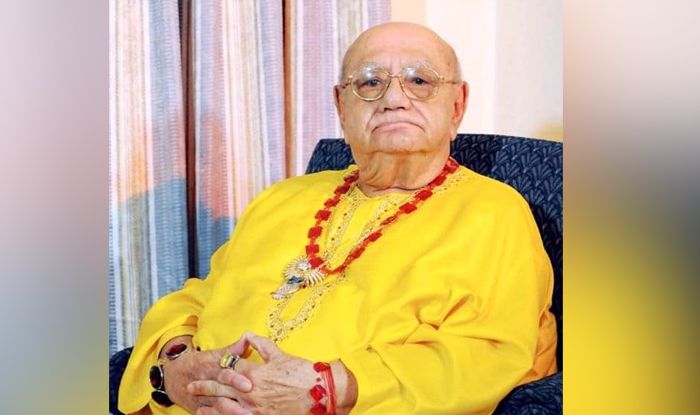Florence Baker: the polyglot slave girl turned intrepid explorer
The Transylvanian-born orphan was sold to an English traveller, with whom she discovered the wonders of Africa, married and fought to abolish slavery
Marcel Theroux Sun 31 May 2020

Lady Florence Baker, pictured in London in about 1870. Photograph: Henry Maull/Alamy
Passport details
Lady Florence Baker, née Flora Barbara Maria von Szász, or Sass. Born 6 August 1841 in Nagyenyed, then in the Kingdom of Hungary, now Aiud in present-day Romania.
Claim to fame
The details of Florence Baker’s early life are sketchy – fordramatic reasons. As an orphan she was sold into the Ottoman slave trade, and in 1859 found herself on the auction block in Vidin, in present-day Bulgaria. Blonde, blue-eyed and polylingual, she caught the eye of English traveller Samuel Baker, who bought her.
Baker, a middle-aged widower, took her with him as he headed to Africa to search for the source of the Nile. Along the way, Florence learned Arabic, brokered peace when their team of locals mutinied, and nearly died of sunstroke. They didn’t find the source of the Nile, but she and Samuel were the first Europeans to see Murchison Falls and Lake Albert in Uganda. When Samuel went back to England in 1865 to be knighted, she went with him as his wife. Explorer David Livingstone wrote snarkily: “Baker married his mistress at Cairo and by all accounts she deserved it after going through all she did for him.” It’s said that a scandalised Queen Victoria refused to receive them at court. Between 1870 and 1873, the Bakers made another expedition to east Africa to try to suppress the slave trade – presumably a cause Florence felt strongly about.
Supporting documentation
Florence kept diaries of her travels in English, but has been overshadowed by her husband and still lacks a definitive biography. In the writings of others – Samuel especially – she emerges as a person of enormous resourcefulness and sangfroid, whether serving afternoon tea to guests in the jungle or preparing a last-ditch defence against the king of Bunyoro’s army.
Distinguishing marks
It may just be the long exposure times of 19th-century photography, but pictures of Florence portray an icy calm and imperturbability.
Last sighted
Widowed in 1893, Florence lived until 1916 at Sandford Orleigh, the Bakers’ estate in Devon, and was doubtless gratified when the Daily News called her “a refined English lady”.
Intrepidness rating
Florence, like Daenerys Targaryen in Game of Thrones, was blessed with resilience that seems to require supernatural explanat
Passport details
Lady Florence Baker, née Flora Barbara Maria von Szász, or Sass. Born 6 August 1841 in Nagyenyed, then in the Kingdom of Hungary, now Aiud in present-day Romania.
Claim to fame
The details of Florence Baker’s early life are sketchy – fordramatic reasons. As an orphan she was sold into the Ottoman slave trade, and in 1859 found herself on the auction block in Vidin, in present-day Bulgaria. Blonde, blue-eyed and polylingual, she caught the eye of English traveller Samuel Baker, who bought her.
Baker, a middle-aged widower, took her with him as he headed to Africa to search for the source of the Nile. Along the way, Florence learned Arabic, brokered peace when their team of locals mutinied, and nearly died of sunstroke. They didn’t find the source of the Nile, but she and Samuel were the first Europeans to see Murchison Falls and Lake Albert in Uganda. When Samuel went back to England in 1865 to be knighted, she went with him as his wife. Explorer David Livingstone wrote snarkily: “Baker married his mistress at Cairo and by all accounts she deserved it after going through all she did for him.” It’s said that a scandalised Queen Victoria refused to receive them at court. Between 1870 and 1873, the Bakers made another expedition to east Africa to try to suppress the slave trade – presumably a cause Florence felt strongly about.
Supporting documentation
Florence kept diaries of her travels in English, but has been overshadowed by her husband and still lacks a definitive biography. In the writings of others – Samuel especially – she emerges as a person of enormous resourcefulness and sangfroid, whether serving afternoon tea to guests in the jungle or preparing a last-ditch defence against the king of Bunyoro’s army.
Distinguishing marks
It may just be the long exposure times of 19th-century photography, but pictures of Florence portray an icy calm and imperturbability.
Last sighted
Widowed in 1893, Florence lived until 1916 at Sandford Orleigh, the Bakers’ estate in Devon, and was doubtless gratified when the Daily News called her “a refined English lady”.
Intrepidness rating
Florence, like Daenerys Targaryen in Game of Thrones, was blessed with resilience that seems to require supernatural explanat






















